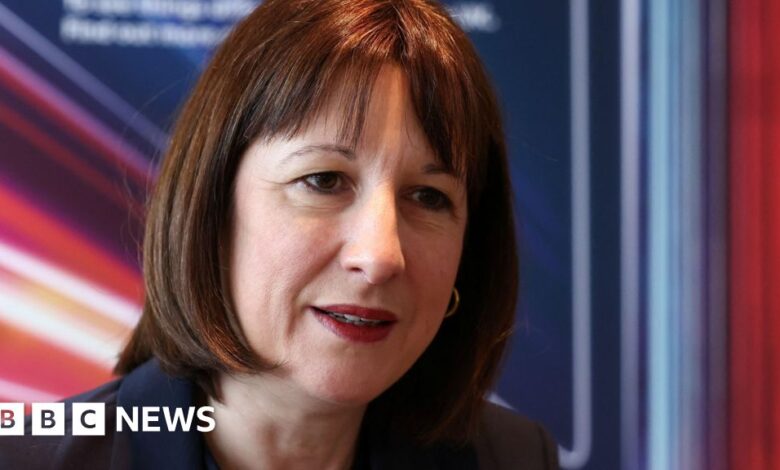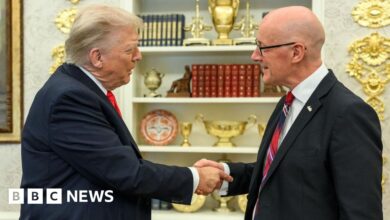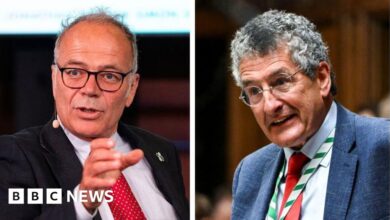Rachel Reeves to soften non-dom tax changes

Plans to abolish non-dom status will be amended to allow a more generous phase out of tax benefits, Chancellor Rachel Reeves has announced.
Reeves told an audience at the World Economic Forum in Davos that changes would be made to upcoming legislation to increase the generosity of a facility to help non-doms repatriate their funds to the UK.
Non-dom status enables people who live in the UK to avoid paying UK tax on money made abroad because their permanent home for tax purposes is outside the country.
Labour pledged to scrap the status in its election manifesto, saying this would address unfairness in the tax system and raise extra money for public services.
However, critics have raised concerns the changes could prompt wealthy people to leave the UK.
A report published earlier this week by global analytics firm New World Wealth and investment migration advisers Henley & Partners found more than 10,000 millionaires left the UK in 2024, a 157% increase on the previous year.
Analysts cited factors including additional taxes affecting non-doms and other wealthy individuals as well as the growing dominance of the US and Asia in the tech sector and the dwindling importance of the London Stock Exchange.
Reeves told an event hosted by the Wall Street Journal: “We have been listening to the concerns that have been raised by the non-dom community.”
Changes will be made to the Temporary Repatriation Facility, a three-year scheme to help ex non-doms bring their assets to the UK at a discounted tax rate.
Downing Street said the tweaks, which will be made through amendments to the Finance Bill, did not change the government’s overall approach “to replacing the outdated non-dom tax regime”.
The prime minister’s official spokesman said the new system “addresses unfairness in our tax system, attracts the best talent and investment to the UK and ensures that everyone who is a long-term resident of the UK pays their tax here”.
A Treasury spokesperson said the changes were not expected to impact the £33.8bn the policy is expected to raise over the next five years by the government’s independent forecaster.
“The Temporary Repatriation Facility is designed to encourage non-doms to bring their funds to the UK, encouraging them to spend and invest this money here,” the spokesperson added.
However, Nigel Green, chief executive of global financial advisory firm deVere Group, said the announcement had “landed with a thud” among investors and wealthy individuals.
He said the “vague proposal to adjust the rules offers neither the clarity nor the assurances required to reverse the damage already inflicted”.
Conservative shadow chancellor Mel Stride said: “Labour’s Budget is falling apart in front of our eyes.
“At the election Labour said their plans would raise money, now they have been forced to admit their plans make the UK less attractive.
“But the damage is already done – tax revenue equivalent to hundreds of thousands of taxpayers has already been lost.”
Meanwhile, the Scottish National Party accused the chancellor of doing a “Davos deal for millionaires”, saying the government had become “rapidly out of touch”.
The party’s economy spokesman Dave Doogan said Reeves had “a listening ear for millionaires” but was “deaf to the difficulties of those millions still struggling with the cost-of-living crisis”.
Reeves chose to announce the relaxation in Davos as part of a multipronged effort to show willingness to change policy to help economic growth.
On Wednesday she also set out changes to visas to allow top talent in Artificial Intelligence (AI) and medicines research to come to the UK.
Some in industry feel there is an opportunity for the UK to poach top talent in science and pharmaceuticals from the US under the new administration, and in AI from European Union.




